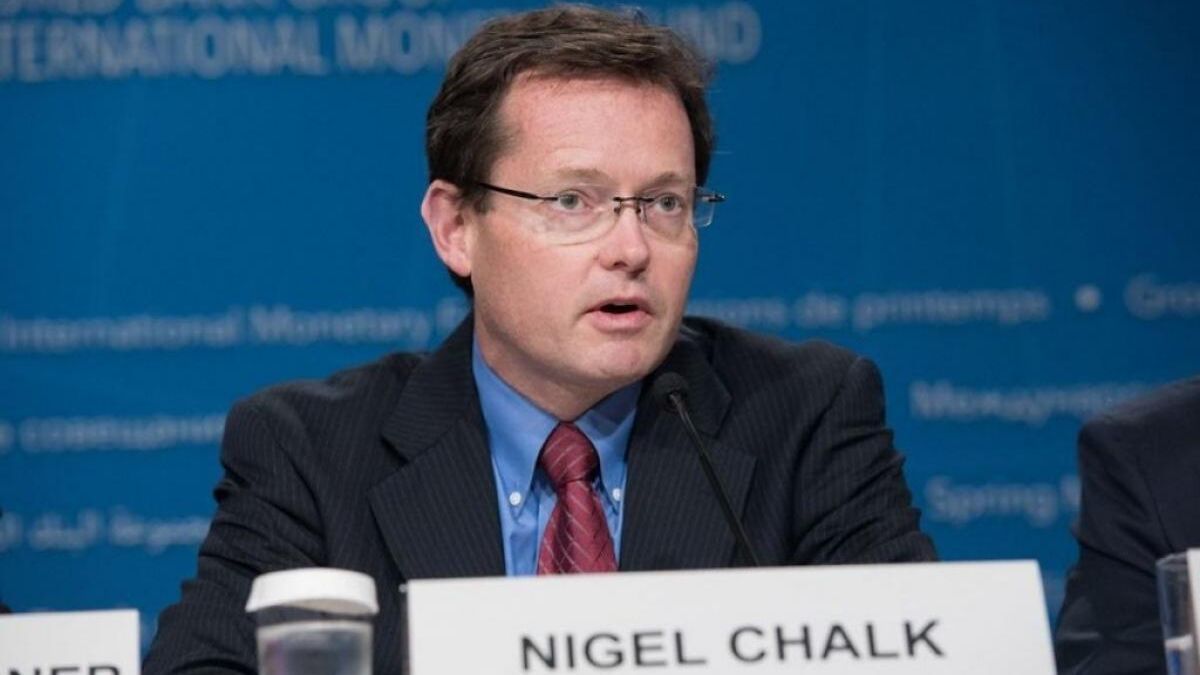Ironically, or not so ironically, That same thread will be tightened even more on Monday the 27th.when a man assumes a new responsibility. We talk about Nigel Chalkthe brand new director of the IMF’s Western Hemisphere Department. This British economist, with an experienced resume in Asian and European crises, will not only inherit the helm of the revisions of the Argentine agreement, but will become the supreme arbiter of a trilateral pact that involves the United States Treasury (US), the IMF and the president’s government Javier Milei.
So, Rodrigo Valdés will have his replacement in the Fund. Valdés, who had had public disagreements with Milei, was removed from the position in July 2025 and reassigned to another role within the organization.
dollar argentina usa markets
The swap with the United States, key to the Government’s economic plan.
The Government believes that the Chalk award, at least in part, could stabilize the exchange rate, or, in the worst scenario, accompany a devaluation. The fate of the exchange rate scheme ultimately depends on it.which arrives lacking credibility and with a leaky armor.
The economic program, with its emphasis on fiscal adjustment and the lack of reserve accumulation, has managed to partially tame the dollar from the volatility peaks at the beginning of the year, thanks to the banding scheme and the surgical intervention of the Central Bank in the futures market. However, Sunday’s elections introduce a disruptive element: a weakened ruling party in Congress could delay key reforms, such as exchange rate flexibility, forcing the IMF to toughen its criteria.
Here comes Chalk, whose role is not merely administrative; as direct link with the Washington Treasurywill decide if the agreement survives or if, as it seems, the Government will have to negotiate new goals. The possibility of advancing from 2026 with stricter conditionalities.
Definitions at the door: the future of the dollar
For the dollar, this means the difference between a marginal appreciation of the peso and a sudden jump into the abyss of devaluation that restores competitiveness to the export sectors. Chalk’s career, forged in the trenches of the IMF since 1997positions him as a pragmatic guardian of monetary orthodoxy, with a history of mediations that have saved programs in Thailand and Greece, but also of relentless demands for primary surpluses.
It has been noted that his PhD at UCLA and his time at Barclays as an Asia analyst give him a holistic view of capital flows, essential to assess whether the Chinese swap and its potential restitution, but also the erosion of the trade surplus and the negative trend of Foreign Direct Investment (FDI).
In his new position, Chalk to oversee seventh EFF review (Extended Fund Facility), where the focus will be on the exchange bands: will it allow a post-electoral mini-devaluation to align the official with the CCL, or will it impose reserve goals that freeze any adjustment, preserving stability at the cost of anemic growth for 2026?
A quick consultation between sources linked to the negotiation reveals three keys to decipher the impact of Chalk on the future of the Argentine dollar:
- The agreement with the IMF and dependence on external reserves: If, as current indicators indicate, Argentina fails to add significant net reserves through endogenous means—with a stagnant trade flow and no progress in attracting FDI—the program will face a critical bottleneck. Chalk, in coordination with the Treasury, could condition the disbursement of the seventh review to the materialization of the promised swap of US$20,000 million and a syndicated loan from banks. Without this external intervention, the IMF would opt for limited waivers, freezing tranches of the EFF and forcing an additional fiscal adjustment of 0.5% of GDP, which would erode confidence.
- The exchange band system: The current banding scheme is at a post-election crossroads, where Chalk could push for a gradual transition towards a managed float to mitigate inflationary pressures. If the reserves do not exceed US$30 billion net, his mandate would prioritize the strict maintenance of the bands to avoid spirals of devaluation, limiting interventions by the BCRA and demanding a partial unification of the market by December. In an optimistic scenario, with the support of Scott Bessent, Chalk would support an expansion of the bands to ±20%, allowing a controlled correction that releases accumulated pressures and facilitates an export rebound, although at the risk of a temporary inflation of 4% monthly.
- The fate of the economic program as a whole: Milei’s program, anchored in the primary fiscal surplus of 1.5% of GDP and sectoral deregulation, could be consolidated under Chalk’s tutelage if the elections do not fragment Congress beyond what was expected, allowing the approval of the omnibus law 2.0 with emphasis on privatizations and labor reform. However, a significant electoral setback would expose structural vulnerabilities, forcing the official to mediate a “bailout package” with the Treasury that includes conditionalities for an additional $15 billion, but in exchange for 20% cuts in subsidies and a non-emissions pact for 2026. In the worst case, a breakdown in confidence would lead to a recalibration of the EFF with revised growth targets at 1%, prioritizing stability over expansion and extending the adjustment until 2027.
The brand new recommendations of the IMF
In its recent Global Outlook Report, the Fund argued that given a regional panorama marked by global uncertainties and projected slowing growth for Latin America, it is imperative to take into account the need for Argentina to strengthen its reserves position as a fundamental pillar of its macroeconomic stability.
He argued that in the face of “persistent shocks” that affect foreign trade, remittances and capital flows, “only a robust foreign exchange cushion will allow the country to navigate external turbulence with greater autonomy”, consolidating solid monetary frameworks and facilitating a gradual return to international financing markets.
The institution noted that this insistence “does not arise in a vacuum,” but rather as a response to a first semester where “export dynamism in commodities and manufacturing has been offset by a weakening in private consumption in key economies,” which requires “fiscal and exchange discipline” that transcends imminent electoral situations.
With reference to Argentina, he maintained that “The reforms promoted by the current administration, aimed at greater regulatory openness and efficiency, receive the technical endorsement of the IMF as a structural advance against decades of rigidities that hindered productivity.” Measures such as customs simplification through digital tools, the attraction of foreign investments in strategic sectors such as energy and mining, and the elimination of controls on interest rates have configured “a more predictable environment for private capital”, while progress is made in the deregulation of labor markets and the rationalization of entities state.
However, the agency’s report warns that these efforts, although ambitious, must be deepened to mitigate endemic vulnerabilities such as informality and high operating costs, “transforming an initial adjustment into a sustained driver of competitiveness that increases the potential for growth in the medium term.”
Looking towards the horizon, the IMF anticipated for Argentina a GDP rebound of 4.5% in 2025 with annualized inflation around 28%, followed by a moderation towards 4% expansion and price rates between 7% and 12% by the end of 2026, “as long as fiscal anchors are maintained and the accumulation of net reserves is accelerated“.
Source: Ambito




